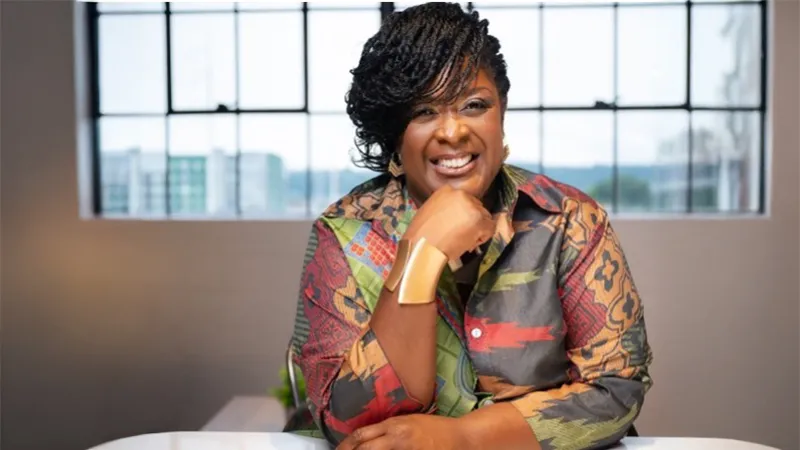Characteristics of Great School Principals That Drive Impact


It may not be the end of the school year, but all the same, the end of the calendar year creates a natural reflection point for K-12 education leaders. In our work with leaders across the country, we’ve seen countless ways that your mindset and actions have led to meaningful change in your school communities this year.
We invite you to take a moment to celebrate your wins—and how your leadership skills were a key part of what you accomplished. Doing so can ensure you continue to set a similar tone for the next part of the year. Here are several qualities that we’ve seen contribute to tremendous impact.
You embrace change through adaptive leadership
The only thing constant is change—you’ve learned that adage over and over again in your role as an education leader. And while we’re sure there are times that these shifts come with their own level of overwhelm, you’re resilient, having adopted a mindset that acknowledges change and unpredictability are simply part of the day-to-day life of your schools and districts.
For you, adaptive leadership is both a mindset and a series of actions. You understand that the toughest challenges are a web of interdependencies—groups of people working together, leadership being distributed, and everyone in your orbit being able to get behind a vision of what’s possible as a result of this change. It’s why you don’t view these types of challenges as impediments, but opportunities for growth, innovation, and equity.
You know that it’s not enough for you to have this mindset and problem-solving focus—it’s also essential to cultivate it within your teams.
You know that it’s not enough for you to have this mindset and problem-solving focus—it’s also essential to cultivate it within your teams. Change can be tough for many in your school community, so you lead with a heightened sense of empathy for those who are on the front lines of that change, while still finding a way to move forward at a pace that’s right for everyone.
You have high expectations for your students and staff
Great principals and district leaders understand that the key to creating a high-expectations culture is rooted in mindset and action. Not only do you believe that every student and adult in your buildings can learn at exceedingly high levels, but you also prioritize activities that turn those beliefs into truths.
Having high expectations is the ultimate form of care for your schools and districts, and because of that, you know that it’s necessary to balance expectations of rigor with a healthy dose of compassion—especially when you’re asking students, teachers, and staff to be the best versions of themselves. It’s what writer and former teacher Zaretta Hammonds calls being a “warm demander,” so you work hard to build strong relationships with the students and adults in your buildings—and then draw on that trust to hold them to high standards.
Not only do you believe that every student and adult in your buildings can learn at exceedingly high levels, but you also prioritize activities that turn those beliefs into truths.
{{blue-form-new}}
You believe that everyone is capable of learning excellence
From the classroom to the superintendent’s office, equity-focused leaders communicate how and why instructional excellence can be achieved in their schools, and you’re no exception. You hold yourself, your schools, and your district accountable to an unwavering expectation: all children are capable of extraordinary things, and every educator and leader can develop the skills and strategies that enable students to excel.
Part of this accountability is also being honest—and having deep conversations—about the systems and structures in your buildings that do not advance equity, including how they were created, who they truly benefit, and what might be needed to dismantle or rework them. These are important, sometimes uncomfortable, discussions, but your goal of creating inclusive environments that allow everyone in your community to feel valued and seen is the ultimate reward.
You understand innovation is more a “how” and less a “what”
In an era where “innovation” seems to be the default solution for the challenges affecting schools and districts, you understand that the biggest rocks—moving the needle on instructional leadership, dealing with teacher and staff shortages—can best be moved by creating the conditions where innovation thrives. It means building in time for experimentation, collaboration, and reflections, and establishing an environment where you and your staff trust one another and feel safe taking risks.
Innovation is about purposeful problem solving, and innovating for innovation’s sake rarely helps you solve the very real challenges you currently have. So, you focus on making sure those closest to the change are able to lead, participate in, and benefit from the innovations being developed—creating a sense of ownership among your school community.
You give teachers impactful feedback
Giving effective feedback is an essential part of building teacher confidence, improving their craft, and ultimately improving student outcomes. Feedback is both an art and a science, and you’re always looking to improve your own feedback-giving skills.
When you give feedback, you consider language that’s collaborative and exploratory, instead of immediately giving advice on what a teacher or staff member “should do.” By asking open-ended questions, you invite those you’re speaking with to self-reflect, receive the feedback with openness, and start a more meaningful dialogue around their practice or professional learning needs.
To make feedback less of a surprise, you’re committed to treating feedback like the continuous loop that it deserves to be by scheduling touchpoints with your teachers and staff throughout the year and allowing your teams the time and space to implement solutions.
Giving effective feedback is an essential part of building teacher confidence, improving their craft, and ultimately improving student outcomes. Feedback is both an art and a science, and you’re always looking to improve your own feedback-giving skills.
{{blue-form}}
You build relationships with your entire school community
You eagerly take on the role of “Chief Relationship Builder”—connecting the dots between students, staff, families, and the community organizations outside your school or administrative building’s four walls.
There’s a nuance to this relationship building, and there are several tools in your tool kit to create these connections:
- You’ve honed your listening skills with your team, understanding that active listening is the key to building trust
- You create safety and stability for your students simply by being an adult who they see each day
- You see the promise of community-centric school design, and create opportunities for your students to connect with, learn from, and contribute to the world around them
- You prioritize collaborative conversations and two-way communication with families
You work hard at building these relationships. Not only does strengthening trust and connection help your schools and districts run more smoothly, but these bonds also lift you up when your role feels heavy.
Education leaders, take a moment to reflect and celebrate this season
In the midst of this busy time, pausing to celebrate your wins, and the qualities you practice daily that make these wins possible, is so important. When we take time to do so, we create the energy and motivation to reach our larger goals.
So, before you go onto the next task or project, take a bit of time to rest, and give yourself some kudos. You’ve played a significant role in so many lives this year, and you’ve no doubt grown as a leader. And that alone is worthy of celebration.




.svg)
.svg)
.svg)
.svg)



.svg)
.svg)







